Eczema on the hands is a common, non-contagious, chronic skin condition that causes skin to become dry and irritated. While hand eczema is usually a short-term concern, it can affect some people for many years, impacting their daily life. This article explains what to look for, the possible causes and triggers, and makes suggestions on how to care for itching and dry skin caused by eczema on the hands.
What is hand eczema?
Hand eczema,also known as hand dermatitis, is a chronic inflammatory skin condition that results in dry, itchy skin on the hands. Eczema on the hands affects approximately 10% of the U.S. population and 14.5% of the general population worldwide, and symptoms can vary from person to person. Contact with allergens or chemical irritants, as well as genetics, can trigger hand eczema symptoms.
Symptoms of eczema on hands
Symptoms of hand eczema can vary from mild dryness, irritation and itchiness to flaking, cracked and intensely itchy hands. Eczema has stages where the condition is aggravated known as flare-ups, and periods of time in between flare-ups where the skin is calmer. Once skin is dry and irritated, scratching makes symptoms worse. Different parts of the hand can be affected by eczema, including the backs of the hands, knuckles, fingers, finger webs or tips, wrists, or in more severe cases, on the center of the palms.
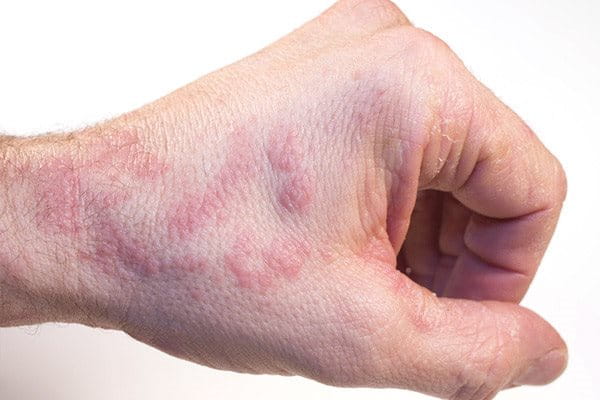
If you are experiencing any of the following more severe eczema symptoms, be sure to contact a healthcare professional for guidance:
- Swelling
- Red or brown plaques
- Skin feeling hot or a burning sensation
- Pain when moving the hand or fingers
- Crusts or pus
- Itchy blisters or cracks resulting in weeping or bleeding
Who suffers from eczema on hands?
With the average age of onset for hand eczema being 12 years old, it is common for eczema to appear on the hands during childhood. However, since eczema on the hands is most commonly triggered by chemical irritants in the environment, it is most commonly seen in working-age adults, with diagnoses more common in women than men.
Eczema on the hands often affects people who regularly come into contact with chemicals and other irritants and is most prominent in people with jobs in the cleaning, mechanical, catering or hairdressing industry.
As with all types of eczema including atopic and contact dermatitis, hand eczema is non contagious but it can be difficult to live with and be disruptive to daily life, work, and self-esteem.
If you or your child already experience atopic dermatitis on other areas of your body, you are statistically at higher risk of developing hand eczema. Learn more about this condition on our website:
Causes of eczema on hands
Though the exact cause of hand eczema varies, some people have a genetic propensity to the condition that can run in families, and it has been linked to an increased likelihood when other conditions are present like hay fever and asthma.
Hand eczema caused by contact dermatitis
People without an underlying condition or genetic predisposition can also develop hand eczema due to external factors. Hand eczema caused by skin damage due to chemical and environmental irritants is known as irritant contact dermatitis. The skin on our hands is already more prone to dryness than on other parts of our body due to reduced sebaceous glands and frequent exposure to potential irritants like soap and dry air. Frequent washing or repeated contact with water (sometimes known as ‘wet work’), cold weather, and chemicals in the workplace can all damage the [skin’s moisture barrier]. Thiscauses it to dry out, making it even more prone to irritation.
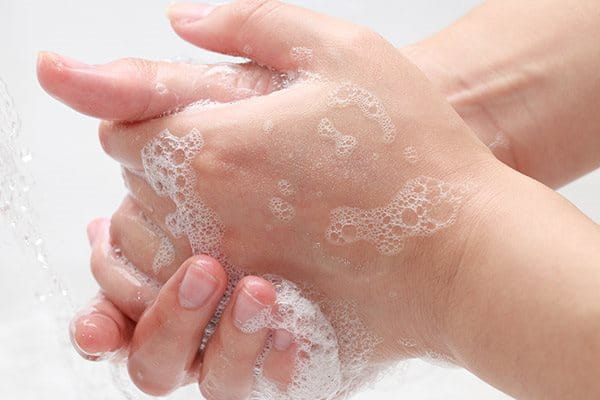
Another cause of hand eczema, known as allergic contact dermatitis, is much less common and occurs when the body becomes allergic to a substance after regular exposure. Symptoms are similar to other forms of hand eczema, as is treatment. Common allergens include hair dye, perfume, nickel (used in jewelry and watches), leather, latex in rubber gloves and certain types of plants. To find out if an allergy is causing allergic contact dermatitis, contact a dermatologist for an allergy patch test.
Beyond these three common causes of eczema on hands, for many, the cause is unknown, and a trigger cannot be identified. It's also possible for there to be more than one cause of a person's hand eczema, such as a combination of irritant contact dermatitis and a genetic predisposition.
How to help treat the symptoms of eczema on hands
While the best way to help treat the symptoms of hand eczema is to avoid the triggers that cause it, regular and effective skincare will also help you to give your skin the support it needs. This can help prolong periods between flare-ups and soothe skin when it’s experiencing eczema symptoms. Be consistent with your daily care routine.
Hand washing
Wash your hands in lukewarm water - avoid temperatures that are too hot or too cold. Use a gentle, fragrance-free handwash or cleanser that has been specially formulated for regular use and eczema-prone skin such as Eucerin Eczema Relief Cream and Body Wash.
Try to avoid waterless, antibacterial cleansers as they often contain alcohol and solvents that can exacerbate eczema symptoms and make flare-ups worse. Instead, use non-soap cleansers.
Moisturizing the hands
After washing your hands, pat rather than rub your skin dry, ensure your hands are completely dry, and apply a moisturizer such as Eucerin Eczema Relief Cream.
Eczema hand cream
During eczema flare-ups, you can use an eczema flare-up cream to help bring relief of hand eczema symptoms like itching, irritation, and dryness.
Eucerin Eczema Relief Flare-Up Treatment is proven to relieve itching, minor irritation and dryness due to eczema. Fragrance- and steroid-free and enriched with Colloidal Oatmeal skin protectant, Ceramide-3, and Licorice Root Extract, this skin protectant eczema cream is appropriate for use on adults, children, and infants 3 months and older.
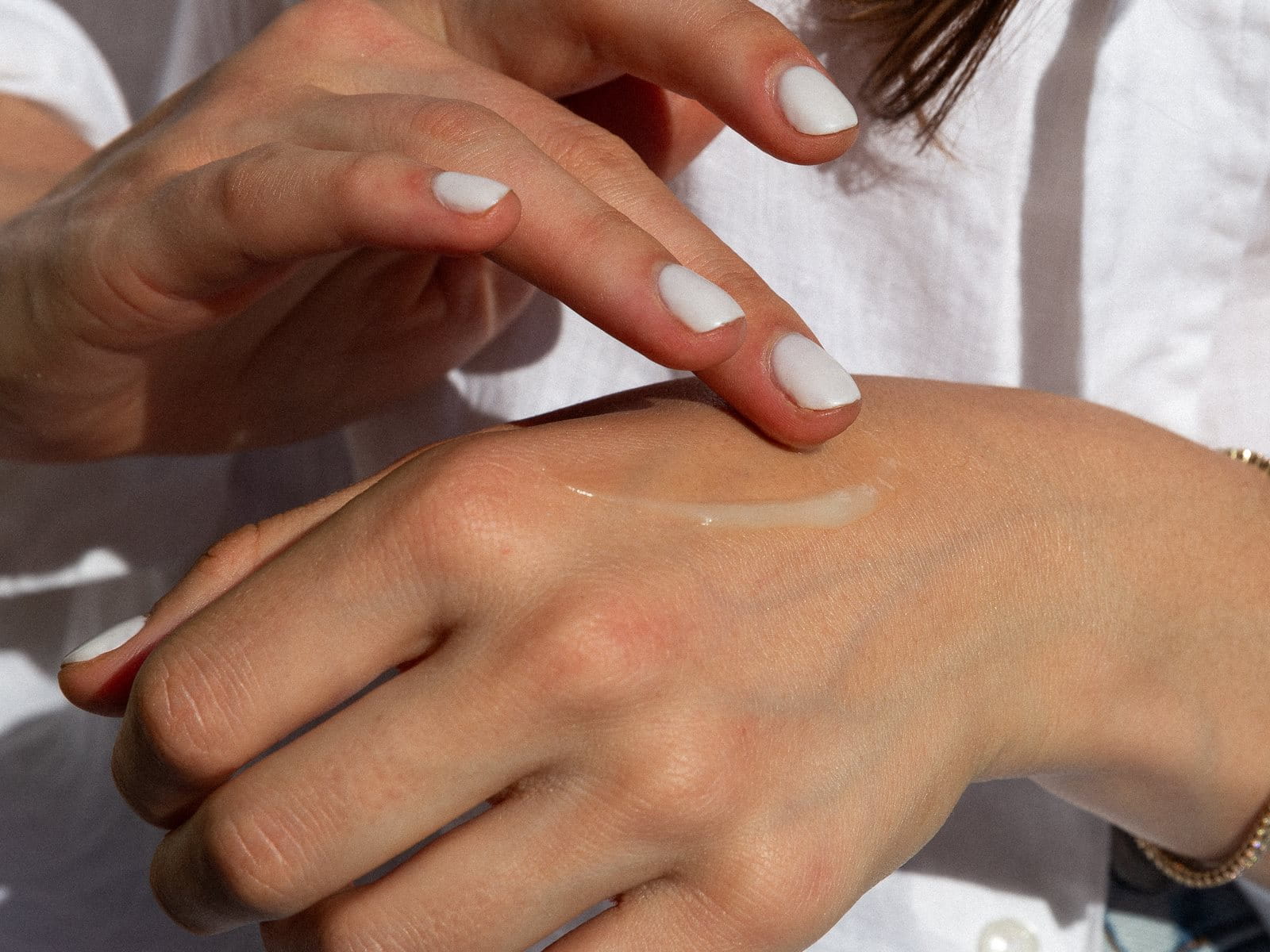
For instant soothing relief of itching and irritation from eczema, Eucerin Eczema Relief Hydrogel delivers 48 hours of hydration in an ultra-lightweight, fast-absorbing formula. This eczema relief product is appropriate for use on hands as well as face and body and provides an instant cool feeling when applied. It soothes skin and relieves itch due to eczema for up to 12 hours. As with the Eucerin Eczema Relief Flare-Up Treatment listed above, Eucerin Eczema Relief Hydrogel is fragrance- and steroid-free and appropriate for use on adults, children, and infants ages 3 months and up.
For daily maintenance of eczema-prone skin between flare-ups, use Eucerin Eczema Relief Body Cream. This body cream for dry, itchy, eczema-prone skin is clinically proven to reduce the incidence of eczema flare-ups. Eucerin Eczema Relief Body Cream delivers 24-hour hydration to support the skin’s barrier and help protect against dryness. It’s appropriate for use on adults, children, and infants 3 months and older
How to help prevent hand eczema flare-ups by avoiding common triggers
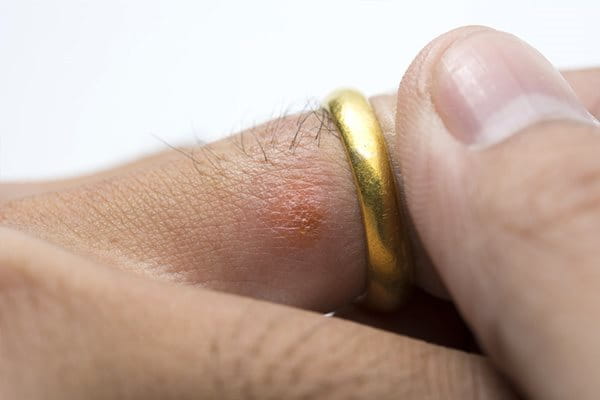
Using products appropriate for eczema-prone skin can help manage eczema symptoms and prolong thetime between flare-ups. Identifying triggers early on can help prevent long-term issues.
Help prevent hand eczema symptoms from flaring by trying to avoid whatever is triggering them. Here are some ways to avoid common hand eczema triggers and help prevent eczema flare-ups on hands:
- Minimize contact with chemical and environmental irritants.
- Wear protective gloves at work and at home when in contact with water or chemicals or when gardening.
- If you have to work for longer periods of time, wear cotton gloves under heavy duty vinyl or neoprene gloves. This protects skin from rubbing and prevents moisture build up inside the gloves.
- If possible, limit washing dishes or clothes by hand. Use a dishwasher or washing machine. When washing dishes or clothes by hand, be sure to wear protective gloves.
- Limit the amount of jewelry you wear, remove it at night and clean it regularly.
- Use disposable gloves if you work with foods such as onions, potatoes, meat or acidic fruits, and throw them away when you’re finished.
- Shampoo your hair while wearing protective gloves (waterproof vinyl with cotton liners), using rubber bands to prevent water getting into the gloves. Alternatively, ask someone else to wash your hair for you.
Making hand eczema manageable with Eucerin
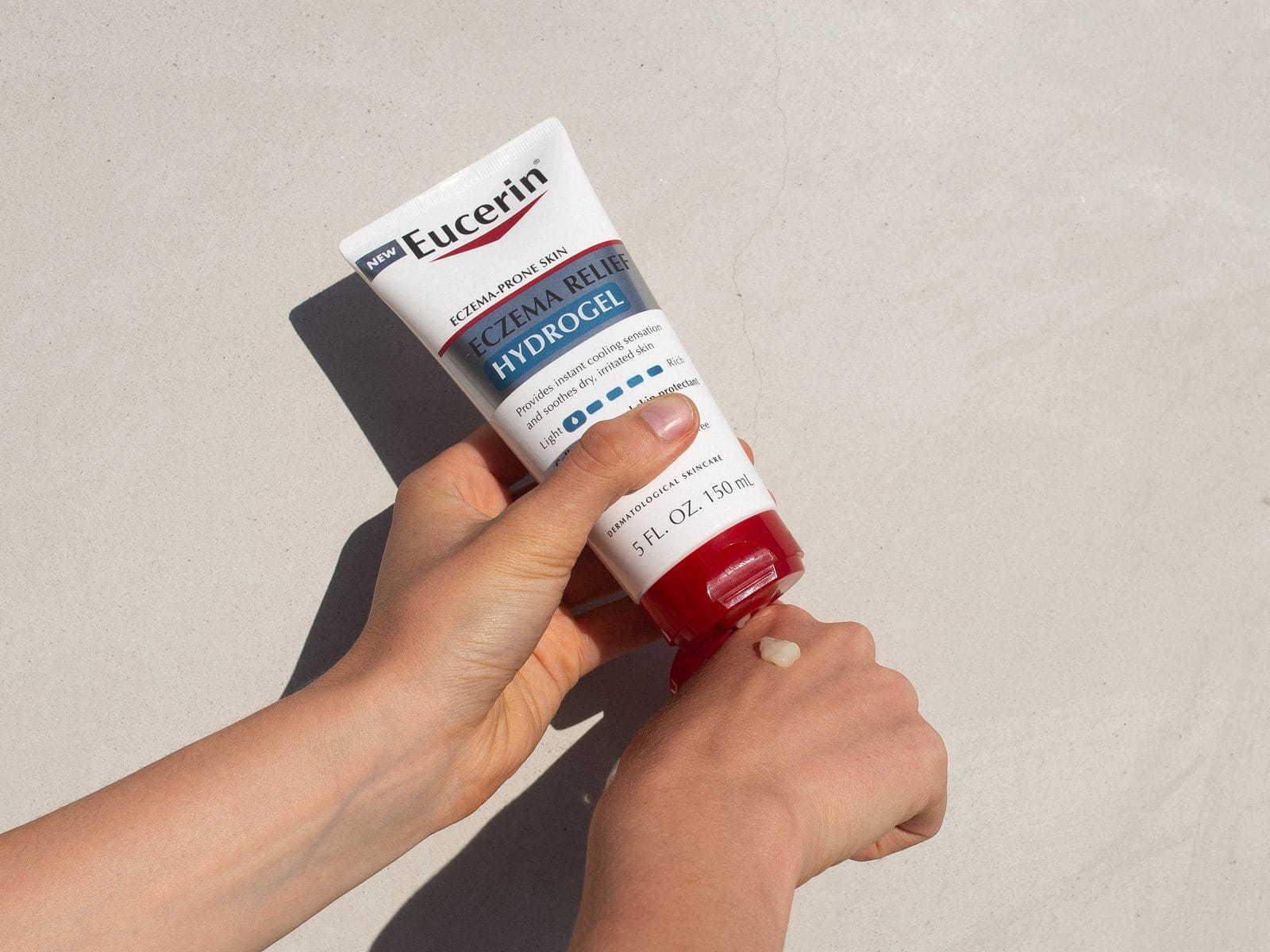
Navigating life with hand eczema can be a challenge, particularly during a flare-up, but with Eucerin’s collection of eczema relief creams and flare-up products, you can find relief for eczema-related itch and mild irritation so you can focus on living your life and enjoying your daily activities.
View our full collection of eczema skincare products.
The information provided herein is not intended to be medical advice. Nor is it intended to treat the underlying skin disease or condition. The information is provided solely to:
- Moisturize, soften and smooth dry skin
- Improve the appearance of the skin
- Achieve healthier-looking skin


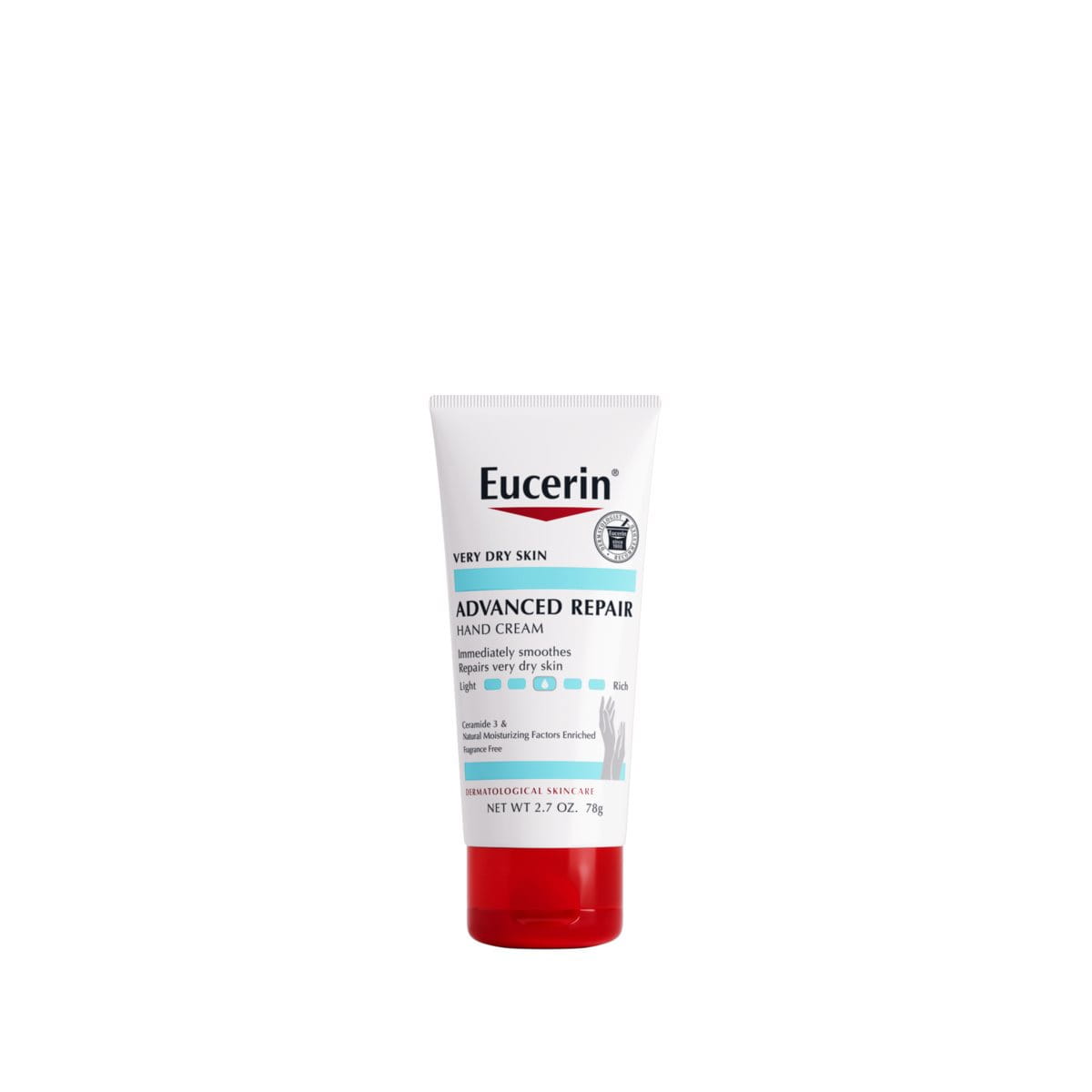
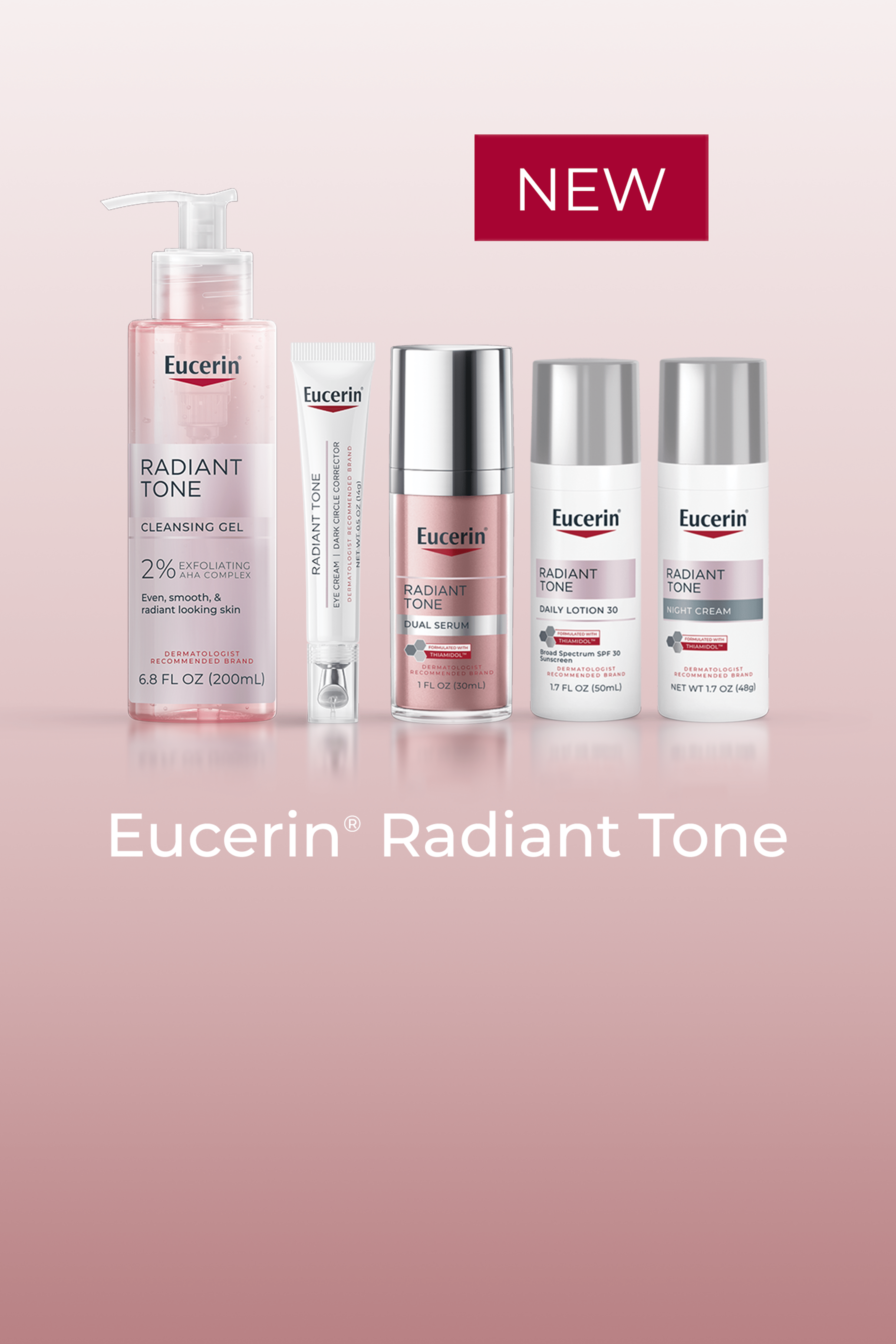


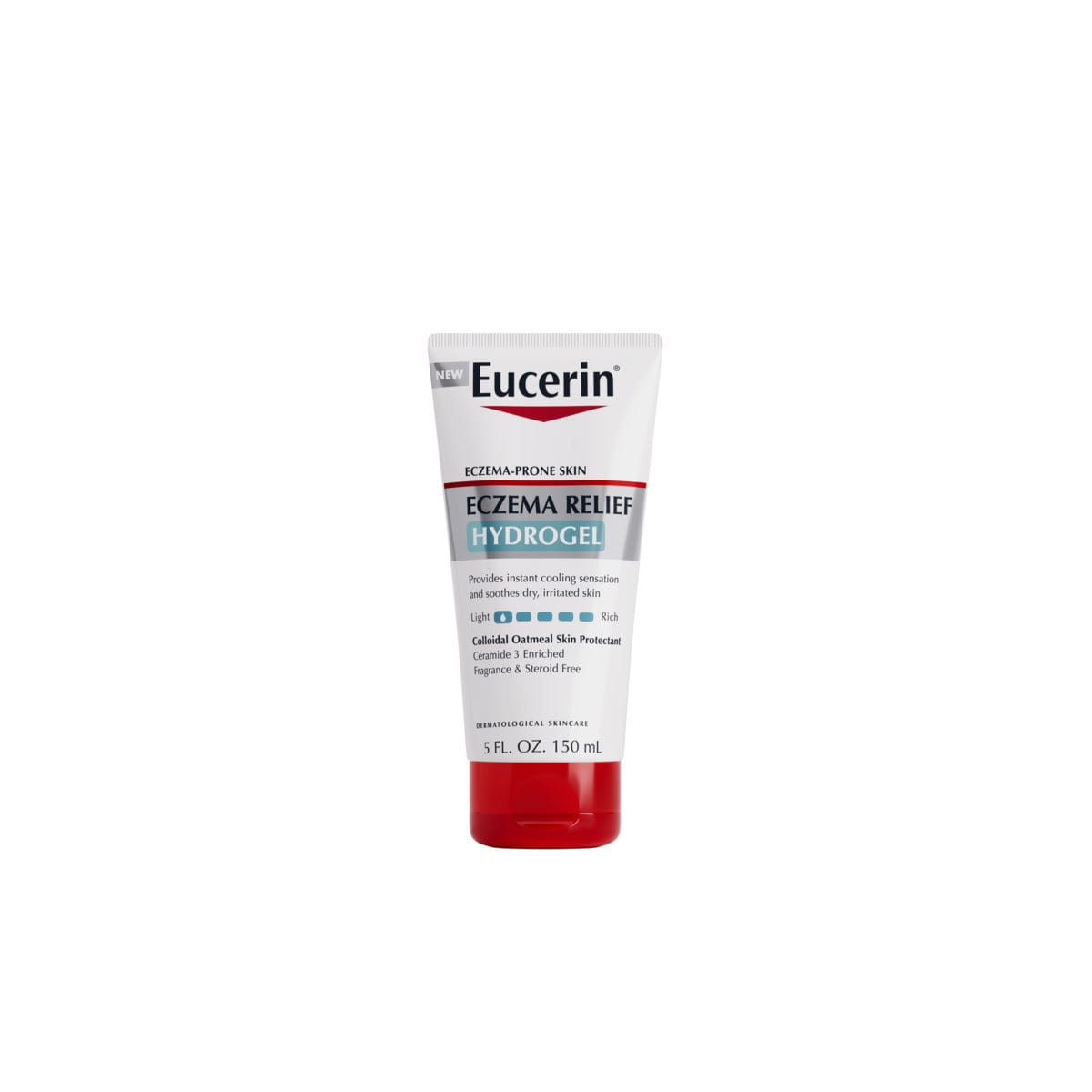


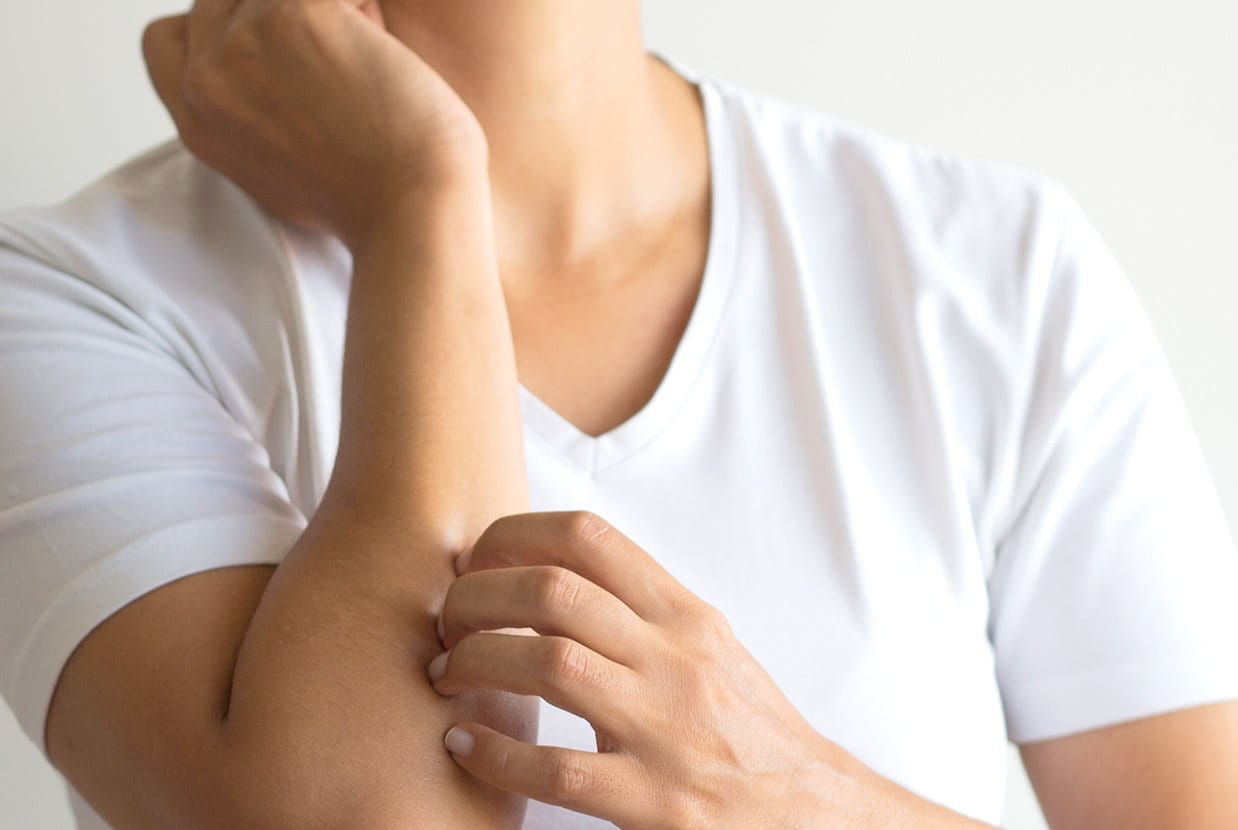
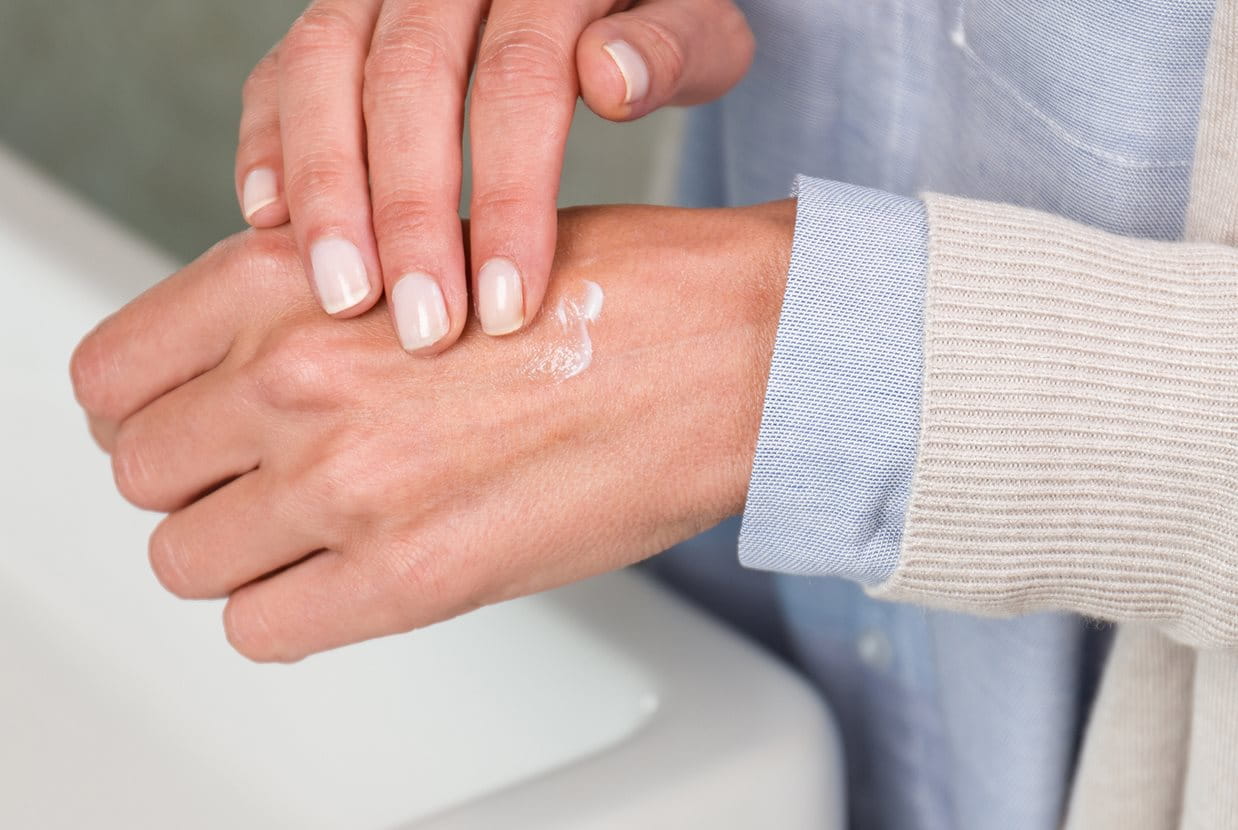
/untitled%20design%20(94).png?rx=51&ry=0&rw=862&rh=578&hash=CDCC5C5EA2E083DA77DF49EE9240B930)
